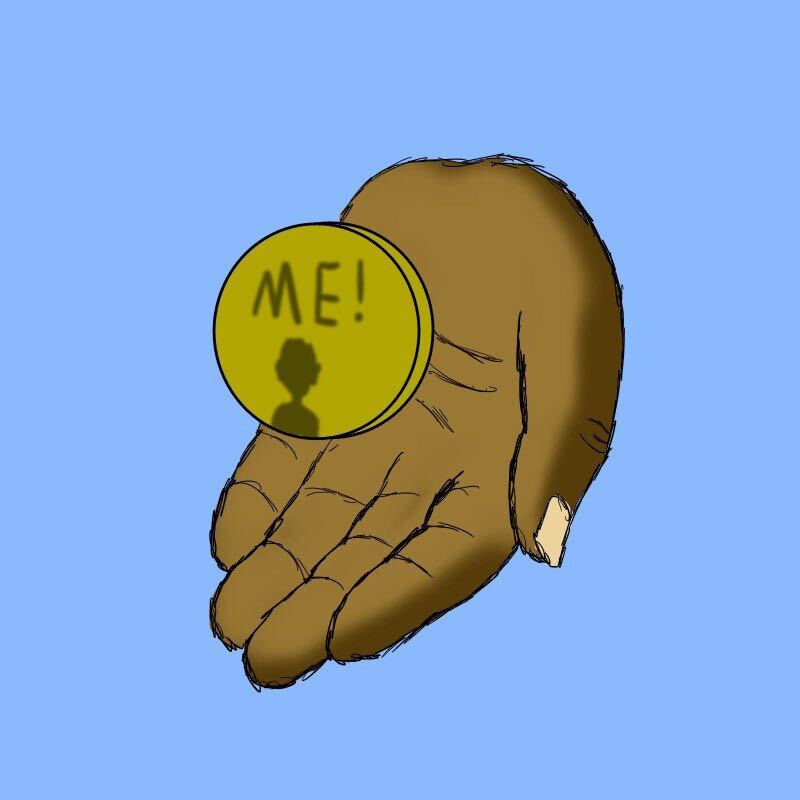Opinion | You can’t tokenize yourself
April 4, 2023
Being a young Jewish American, my culture and ethnicity as an Ashkenazi Jew is a huge part of my life. I was immersed in the Jewish religion as soon as I was born, attending a Jewish daycare, Hebrew school and religious services as a child. After I became a Bat Mitzvah, I worked as a teacher’s assistant in synagogue classrooms until I graduated high school. Over the years, I’ve attended — and later worked at — sleepaway camps centered on ideals of Judaism, social justice and progressive labor Zionism.
Judaism is a significant aspect of my identity, and I believe it’s important for me to recognize and embrace my identity in every part of my life. Likewise, I enjoy sharing this part of myself with others, whether that is through Jewish cuisine or simply conversations about Judaism. Many people I meet at university know little about the religion, and I love educating others about Judaism, its status as an ethnoreligion and our many practices and beliefs.
However, this often comes at a cost — am I enabling others to define me by this? Am I making myself the “token Jew” in my social circles? Am I tokenizing myself?
A few years ago, when discussing this with a half-Jewish friend, she told me that I was, in fact, tokenizing myself by making Judaism such a big part of my identity. If I don’t want people to define me by my ethnicity and religion, then I shouldn’t express it so loudly.
Despite her going back on this statement some time later, the response still stuck with me. Thus, I am here to argue — for others in the same predicament, and for my own benefit — that you aren’t able to tokenize yourself. Rather, it is the people who define you by your marginalized status — people who look to you for answers about anything relating to this identity, who make assumptions about your lifestyle — who tokenize you.
So, what exactly is “tokenism”? The common definition of tokenism is the practice of making only a symbolic effort to include someone, typically done in a workplace seeking to create an air of inclusivity by hiring a few “token” minorities. I take tokenism to also represent a more psychological phenomenon in which members of a marginalized group are treated differently from others, and are thus defined by their identity.
“Tokens” are people perceived as distinctive members of a marginalized group, often considered experts on something or having the stereotypical qualities of this group. Those who differ by appearance or are born into a distinctive culture may be considered experts on ethnicities or cultures grouped into the same category as well, whether or not they are truly related. They become an overarching symbol of their minority group and of other groups related to it.
I, like many other individuals of marginalized groups, often experience being a “token.” People look to me for insight into the Arab-Israeli conflict, assume I keep kosher or Shabbat and look to me whenever Judaism is brought up in conversation. I receive comments on how I “look really Jewish” and “Oh, that makes sense” when I reveal my identity, simply based on my appearance.
I often feel as though I encourage this tokenization, however. I want to educate others on Jewish topics when I have sufficient knowledge. I want to break assumptions about Jews and dissuade antisemitism. I want people to know about this part of myself.
When it really comes down to it, though, I know I’m not the one making myself the “token Jew” in my social spaces. Expressing my identity to others does not instigate comments about my appearance or questions about Israel. It’s the assumptions of those around me — those who highlight my identity in spaces and conversations where it is not relevant — who tokenize me.
Different groups of people are tokenized when their identity differs from those around them. It’s not just Jews who are tokenized or even members of other religious minorities. An individual’s race, ethnicity, age, gender, religion, sexual orientation, gender identity, gender expression, disability or socioeconomic status may make people see and treat them as “other.” However, people should not have to hide who they are or diminish a core aspect of their identity so as not to feel othered.
Tokenization is not as black and white as hiring someone to meet a minority quota. It’s far more nuanced, with people making assumptions, expressing microaggressions and placing minorities in uncomfortable situations. It’s assigning them responsibility for educating others on a topic that is not theirs to represent. It’s seeing someone as the spokesperson for their minority group. It’s defining this person by their identity, not recognizing that this identity is simply a facet of who they are. It is reminding someone that they are “other,” intrinsically different and separate from everyone else.
You should be allowed to express who you are, unabashed and proud, without people making you feel othered. It is not your fault if people see you as a “token” simply because you want to start conversations about your identity, educate others and acknowledge that you are different. It is the responsibility of others to distinguish your identity from your existence and not assign you the responsibility of representing your minority group.
Sarah Liez writes primarily about gender issues and social phenomena. Write to her at [email protected].








